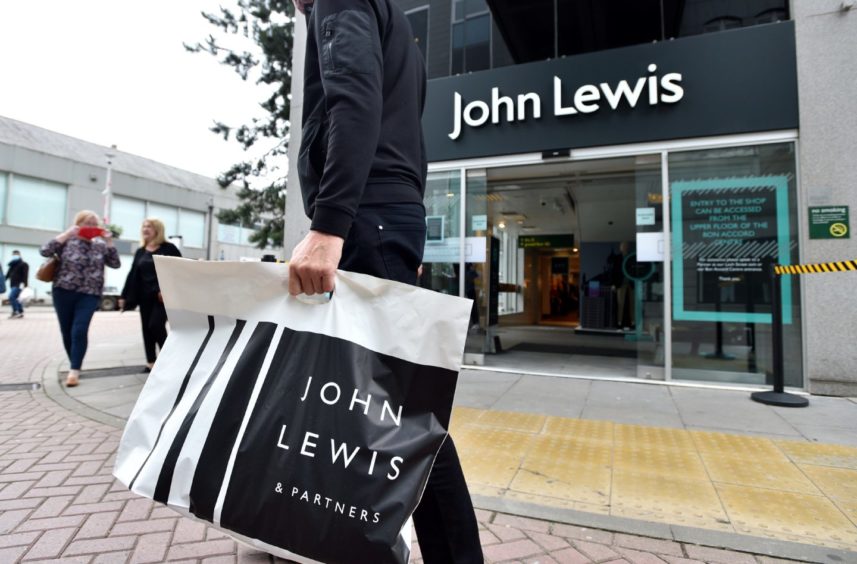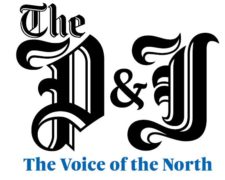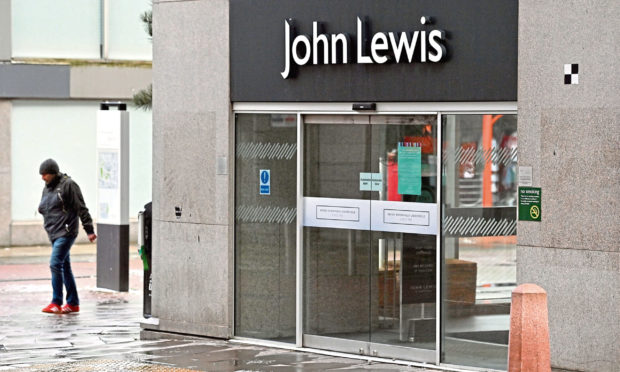The Scottish Government has been urged to intervene to give struggling city centres such as Aberdeen a fighting chance of survival.
As closure after closure threatens to tear the heart from Scottish retail, the Federation of Small Businesses called on the Scottish National Investment Bank – an arm of the government – to invest in repurposing long-term vacant units.
It believes such a move could be key to retaining small retailers and attracting vibrant independent new businesses.
Last month, John Lewis announced plans to shut its premises on George Street in Aberdeen, following on the heels of the closure of the city’s Debenhams store.
Its retail sector has been dealt a series of heavy blows in recent times, with the Bon Accord shopping centre now faced with more than 20 empty units out of a total of 45.
The news John Lewis is looking to pull out of Aberdeen has also sparked fears over the possible impact on the George Street area, home to a number of small businesses.
Retail analyst Richard Hyman recently said that “the very existence of retail is threatened,” because so many manufacturers now sell directly to shoppers via their websites or social media channels. This applies to major names such as Apple and Nike, but also to new brands who are finding the low cost of setting up an online presence, coupled with highly targeted marketing, more straightforward in building a following.
“Retail used to have the monopoly on putting the product and the customer together. That’s over,” Hyman said.
A fighting chance
Speaking to the Press and Journal, David Groundwater, business development manager for the Federation of Small Businesses (FSB), said the John Lewis department store had been a “magnet” for Aberdeen, drawing shoppers to that area of the city centre from across the north.
It’s loss would have “huge consequences”, he said, but added: “There are steps that can be taken now to save our shops and help mitigate the huge challenges as we exit restrictions.
From the Editor: Time to make your voice heard and save John Lewis – and our city centre too
“For example, our research shows that what small businesses want to see is investment that gives them breathing space to recover, with reducing costs seen as the top priority.
“Retention of the Small Business Bonus Scheme and reduction in rent are seen as key; the majority of our members have been forced to pay rent as normal throughout the Covid crisis.
“This is closely followed by moves to tackle empty units on our high streets.
“In our manifesto we’re calling on this to be addressed via moves such as getting the Scottish National Investment Bank (SNIB) to invest in repurposing long-term vacant units on our high streets.
“By encouraging smaller businesses to remain, and more independents to start up or occupy empty units, we have a fighting chance at keeping our city centre alive.”
That appears to marry with the SNIB’s own 2040 plan for building communities and promoting equality.
It states: “We will invest in places and regeneration to improve opportunities and outcomes for people and communities.”

High-level talks between city officials, business leaders and senior executives at John Lewis have been held with a view to convincing the retail giant to stay in Aberdeen.
It is understood that whatever happens, the partnership will not reopen on George Street, although the possibility of moving to another city centre site and incorporating a Waitrose store has been discussed.
Mr Groundwater added: “The coronavirus crisis has disrupted how many of us live and work, dramatically reducing footfall across the city, but it’s important that where we can we all do our bit to get out and help our small and independent businesses.
“With elections just round the corner and the country at the most important period in the history of devolution, the job facing the next Scottish Government is huge.”
The warnings from Mr Groundwater and Mr Hyam chime with research consultancy Retail Economics’ view.
“From our estimate there needs to be 20% fewer stores. There needs to be a rebalancing, particularly in big city centres,” its CEO Richard Lim said.
Comment: Courage and creativity vital for economy
One of the most important stories of last week – and one that received less attention that it should have – was the Oxford Economics report from the Hunter Foundation entitled Raising Scotland’s Economic Growth Rate.
 Among the key takeaways are that growth lags behind that of other comparable countries and the forecast of a widening gap with our European neighbours. GDP per head in Scotland is, for example, 68% of Norway’s and 75% of Denmark’s.
Among the key takeaways are that growth lags behind that of other comparable countries and the forecast of a widening gap with our European neighbours. GDP per head in Scotland is, for example, 68% of Norway’s and 75% of Denmark’s.
Add in that the number of businesses being created here is lower than many other nations; that the ability of small firms to scale up is weaker than comparable countries; and that many graduate skills are under-used, and you have a worrying picture as we wrestle with the fallout from the pandemic and Brexit.
Among the report’s recommendations is greater government intervention as well as some deregulation.
Today, the Federation of Small Businesses, speaking in the context of our embattled retail sector, similarly calls for greater government support via the Scottish National Investment Bank.
Although the UK Government must take its share of the blame, the current Scottish Government has been in power for 14 years and there is little sign that it has either the focus or the drive to give businesses in Scotland a platform to compete with the very best small countries. Past performance is often the best predictor of future performance.
And yet never before has it been so important for business growth to be among the administration’s top priorities.
Radical thinking is required. Courage and calculated risk are needed to reinvent our high streets, to turbocharge the transition to renewables and to give small businesses a platform for class-leading growth.
Sadly we have heard too little about this in the current Holyrood election debate.
The Voice of the North

